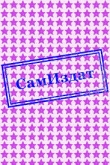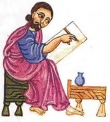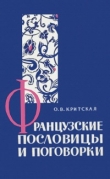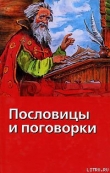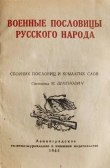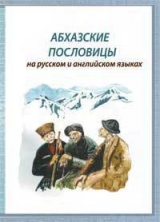
Текст книги "Абхазские пословицы"
Автор книги: Олег Шамба
Жанр:
Справочники
сообщить о нарушении
Текущая страница: 3 (всего у книги 4 страниц)
•••
• У правды дорога широка.
• The road for truth is wide.
•••
• Кто правды не хочет, глухим притворяется.
• He who does not want the truth pretends to be deaf.
•••
• Кому правда горька, тому ложь сладка.
• To whom the truth is bitter, the lie is sweet.
•••
О СЕМЬЕ, РОДИТЕЛЯХ И ДЕТЯХ
THE FAMILY, PARENTS AND CHILDREN
• Когда предложили принести самую красивую вещь, ворона принесла своего вороненка.
• When requested to bring the most beautiful thing, a crow brought her chick.
•••
• Быка выбирай по рогам, а жену – по родословной. • Choose a bull by its horns, and a wife by her family tree.
•••
• Гулящая жена для мужа – гниль в костях.
• An idle wife for a husband is like decay in his bones.
•••
• Кому не суждено жениться, изъян в невесте каждой мнится.
• He who has no wish to marry finds a defect in each bride.
•••
• Сын отца учил, как с женщиной жить.
• A son teaches his father how to live with a woman.
•••
• Без отца – бедность, без матери – сиротство.
• Without a father there is poverty, without a mother there is orphanage.
•••
• Овечка может свою мать по голосу узнать.
• The lamb can recognize its mother by her voice.
•••
• Дереву плохо без ветвей, а женщине – без детей.
• The tree suffers without branches, and the woman – without children.
•••
• Семья без детей – дерево без корней.
• A family without children is like a tree without roots.
•••
• Как ты почитаешь отца и мать, твои дети так будут тебя почитать.
• As you respect your father and mother, so your children will respect you.
•••
• Дочь свою ругай, а невестку – наставляй.
• Scold your daughter, but edify your daughter-in-law.
•••
• У хорошей жены муж без припасов не пойдет в путь.
• With a good wife the husband will never travel without supplies.
•••
• Долг матери никогда не отплатишь, если и яичницу на ладони пожаришь.
• A mother’s debt you will never repay, even if you fry eggs on your palm.
•••
• Жена может и обогатить, и разорить.
• A wife can both enrich and ruin.
•••
• Всегда можешь себя молодым считать, пока живы твои отец и мать.
• You can always consider yourself young while your father and mother are still alive.
•••
• Детеныш волка – волк.
• The cub of a wolf is a wolf.
•••
• У кого ненадежная жена, для того мачеха – дорога.
• For a man with an unreliable wife, the road is a stepmother.
•••
• Сын кошки мышь ловит.
• The son of a cat hunts a mouse.
•••
• Мужчина без жены – лошадь без узды.
• A man without a wife is like a horse without a bridle.
•••
• До свадьбы – соловей, после свадьбы – ворона.
• Before the wedding, a nightingale; after the wedding, a crow.
•••
• Тайну души жене не говори.
• Don’t tell your wife the secrets of your soul.
•••
• Сирота вынужден сам свой пупок разрезать.
• The orphan has to cut his own navel.
•••
• Лошадь красит седло, а семью – жена.
• A horse adorns a saddle, a wife adorns a family.
•••
• Дом без женщины, что очаг без огня.
• A house without a woman is like a hearth without fire.
•••
• Мать с отцом – для детей, а дети – для себя.
• A mother and father are for children, and children are for themselves.
•••
• Нелюбимая жена, что в долг взятая лошадь.
• An unloved wife is like a borrowed horse.
•••
• В многодетной семье корка хлеба не черствеет.
• In a large family the bread crust does not harden.
•••
• Когда нелюбящие разводятся, они и осколки кувшина делят.
• When the unloving get divorced, they divide even a jug’s splinters.
•••
• Еж для матери мягок.
• The hedgehog is soft to its mother.
•••
• Дерево с обширными корнями засухи не боится.
• A tree with vast roots is not afraid of a drought.
•••
• Смотря на мать, дочь сватай.
• Before proposing to the daughter, look at her mother.
•••
• Единственный ребенок сто имен имеет.
• The only child has a hundred names.
•••
• Дочь в доме – гостья.
• A daughter in the house is a guest.
•••
• Вдова знает цену мужу.
• The widow knows the value of her husband.
•••
• Лучше пять гостей принять, чем одного ребенка забавлять.
• It is better to have five visitors than to entertain one child.
•••
• Что оставляет отец, возвращается сыну.
• What the father leaves, comes back to the son.
•••
• Утопающая старуха звала мать на помощь.
• The drowning old woman called to her mother for help.
•••
• Жене и оружию не доверяйся.
• Do not trust your wife or a weapon.
•••
• Отвергнувший мать будет без слез похоронен.
• If you reject your mother you will be buried without tears.
•••
• Дружной семье богаство не нужно.
• Wealth is not necessary for a happy family.
•••
• У хорошей жены муж-бедняк богатым станет.
• With a good wife, a poor husband becomes a rich man.
•••
• Как сам почитаешь родителей, так и тебя будут почитать твои дети.
• The more you respect your parents, the more your children will respect you.
•••
О СТАРОСТИ И МОЛОДОСТИ
OLD AGE AND YOUTH
• У кого нет зубов, его пища не имеет вкуса.
• If he does not have teeth, his food has no taste.
•••
• Лучше с молодым в апацхе спать, чем со стариком деньги считать.
• It is better to sleep with the young than to count money with the old.
•••
• У старого быка красивы лишь рога.
• An old bull has only one beautiful thing – his horns.
•••
• Человек в молодости столько съедает, сколько правой рукой поднимает.
• A person in his youth eats as much as his right hand can lift.
•••
• Молодость – время отваги, старость – время размышлений.
• Youth is a time for courage, old age is a time for reflection.
•••
• Кто раз родился, однажды умрет.
• He who was born once will die once.
•••
• Что приобрел в молодости, в старости не приобрести.
• What you acquire in your youth, you won’t have in your old age.
•••
• Цену молодости спроси у старика.
• Ask an old man about the price of youth.
•••
• Спроси у старика, чего стоит зуб.
• Ask an old man what his tooth is worth.
•••
• Смерть по возрасту не выбирает.
• Death does not choose his victim by age.
•••
• Старую собаку молоком не поят.
• An old dog isn’t given milk to drink.
•••
• Кто умереть желает, скоро не умирает.
• He who wishes to die will not die soon.
•••
• Старцев почитай в молодости, чтобы тебя почитали в старости.
• Respect old men in your youth, then you will be respected in your old age.
•••
• После Бога старейший говорит.
• After God, the oldest speaks.
•••
• Молодость силой красна, старость – умом.
• Youth uses force, old age uses wisdom.
•••
• Мужчина в старости терпение теряет, а женщина – красоту.
• A man loses his patience in old age, and a woman loses her beauty.
•••
• Много труда в молодости, в старости – уважение.
• If you work hard as a youth, in old age you will have respect.
•••
• Красота – временна, молодость – проходяща.
• Beauty is temporary, youth soon passes.
•••
• Хорошее ли, плохое ли, прошлого не вернешь.
• Whether good, whether bad, you will not return to your past.
•••
• Старому ровесников мало.
• The elderly do not have enough peers.
•••
• В старости лечит не лекарство, а внимание.
• In old age the treatment is not medicine, but attention.
•••
• Со старостью и бессилие.
• With old age comes powerlessness.
•••
• Рождение и смерть день не выбирают.
• Birth and death do not choose a day.
•••
• Вовремя и смерть хороша.
• Death in time is good.
•••
• Жизнь для всех временна.
• Life is temporary for all.
•••
• Цену старшего поймешь, когда его нет.
• You will understand the value of an old person when he is no longer present.
•••
• Смерть дня зарю рождает.
• The death of a day gives rise to a new dawn.
•••
• Пока жив человек, цены ему не знаешь.
• While a person is alive, you will never know his real value.
•••
• Для кого близка смерть, тот меняет характер.
• For whom death is close, the character changes.
•••
• Долг и заем не стареют.
• Debt and loan do not grow old.
•••
• Все люди одинаково рождаются, но умирают по-разному.
• All people are born equal, but die differently.
•••
• Чьей ты смерти желаешь, не скоро умрет.
• He whose death you wish won’t die soon.
•••
• Рождение – начало смерти.
• Birth is the beginning of death.
•••
• Не смейся над старостью того, чьей молодости ты не видел.
• Do not laugh at old age, whose youth you did not see.
•••
•Жизнь, как день и ночь, две сторроны имеет.
•Life, like the day and the night, has two sides.
•••
О ЖИТЕЙСКИХ ЗАБОТАХ, ГОРЕ И ПЕЧАЛИ
LIFE’S TROUBLES, GRIEF AND SADNESS
• Ржавчина железо съедает, горе – сердце.
• Rust eats iron, grief eats the heart.
•••
• У беды двери широки.
• For trouble, the doors are open wide.
•••
• Беда приходит легче, чем уходит.
• Trouble comes easier than it leaves.
•••
• Что нужно слепому – так это два глаза.
• What is necessary for the blind is two eyes.
•••
• Замуж выходить – не по воду ходить.
• To get married is not the same as to fetch water.
•••
• Чужое горе – вздох, а личное – беда.
• Another's grief is a sigh, and your own is a disaster.
•••
• Больному даже золотая кровать не помогает.
• Even a golden bed does not help the sick.
•••
• Кто раны боялся, от кашля скончался.
• He who was frightened of a wound died of a cough.
•••
• Смерть не встретишь с открытыми глазами.
• You will not meet death with open eyes.
•••
• Тот, кого уносит река, крика людского не слышит.
• The one who is carried away by the river does not hear people shouting.
•••
• Тот, у кого ты в долгу, тебе царь.
• The person you are in debt to is like a tsar to you.
•••
• Скакуна за хвост не остановить.
• You can’t stop a racehorse by holding its tail.
•••
• Большого дерева и щепка пригодится.
• Even a twig from a big tree is useful.
•••
• Кто малому радуется, того большое ждет.
• Big things wait for those who are happy with small.
•••
• Какое волку дело, сколько ягненок стоит.
• A wolf doesn’t care how much a lamb costs.
•••
• С родственниками хлеб-соль принимай, но не надумай с ними торговать.
• Be hospitable to your relatives, but do not do business with them.
•••
• Что в горах потерял, у моря не ищи.
• What you lost in the mountains, do not search for in the sea.
•••
• Кто горького не ел, сладкого не поймет.
• He who did not eat bitter will not understand sweet.
•••
• Прежде, чем войти, подумай, как выйти.
• Before you enter, think how to leave.
•••
• Не спеши, когда между жизнью и смертью выбираешь.
• Take your time when you choose between life and death.
•••
• Невезучий и кушая мамалыгу, зуб сломает.
• If you’re unlucky, you can break a tooth eating even mamalyga.
•••
• Нет врага ужаснее, чем болезнь.
• There is no enemy more awful than illness.
•••
• Лекарство есть от всех болезней, нет лишь от старости и смерти.
• Medicine is available for all illnesses except old age and death.
•••
• Счастье с богатством, горе с бедностью.
• Happiness with riches, misery with poverty.
•••
• Нищему любая обувь в размер.
• To the beggar, shoes can be any size.
•••
• Только смерть уравнивает всех.
• Only death makes us all equal.
•••
• Когда болеешь – себя жалеешь, а как выздоровел – что потратил.
• When you are ill you are sorry for yourself, but when you have recovered you are sorry for wasting money.
•••
• Кто куском своим делится – голодным не останется.
• He who shares his food will never remain hungry.
•••
• Не учи того плакать, у кого умерла мать.
• Do not teach someone to cry whose mother has died.
•••
• Плач и смех стоят в один ряд.
• Crying and laughter stand in one line.
•••
• Кто не родился, того не оплакивают.
• Do not mourn over someone who was not born.
О ВОСПИТАНИИ И ОБРАЗОВАНИИ
UPBRINGING AND EDUCATION
• Воспитать человека трудно, а испортить – легко.
• To bring up is difficult, but to spoil is easy.
•••
• У хорошего учителя и старая книга новой кажется.
• With a good teacher, an old book seems new.
•••
• Пока малому не научишься, большого не поймешь.
• If you will not learn the simple, you will not understand the complicated.
•••
• Знание иозраста не имеет.
• Knowledge has no age.
•••
• Чем больше человек знает, тем больше себе не доверяет.
• The more a person knows, the less he trusts himself.
•••
• Чем обо всем понемногу знать, лучше об одном, да хорошо.
• It is better to know a lot about one thing than to know a little about a lot of things.
•••
• Ученика по учителю унаешь.
• The student is recognised because of his teacher.
•••
• Хорошего гостя не на всякое место посадишь.
• The good visitor will sit in any place you offer him.
•••
• Позднего ученья нет.
• It’s never too late to study.
•••
• Стеснительный человек и у себя в доме – гость.
• A shy person acts like a guest even in his own house.
•••
• Уважай старшего также, как и себя.
• Respect the elderly as well as yourself.
•••
• Плохое воспитание – будущее без перспективы.
• Bad upbringing means a future without any prospect.
•••
• Пусть ты и голоден, но старшего сперва накорми.
• Even if you are also hungry, first feed those who are older.
•••
• Невоспитанный человек впоследствии человеком хорошим не станет.
• An ill-mannered person will never subsequently become a good person.
•••
• Старшего сына воспитай так, чтобы младшего воспитал.
• Bring up your elder son so that he could bring up your younger.
•••
• И медведь тебя отпустит, если попросишь ласково.
• Even a bear will release you if you ask politely.
•••
• Мир красен солнцем, а человек – образованием.
• The world is beautiful because of the sun, and a person because of their education.
•••
• Много ласк ребенка губит.
• Too many caresses spoil a child.
•••
• Работай для другого, учись для себя.
• Work for another, study for yourself.
•••
• Образование – гость, ум – хозяин.
• Education is the visitor, the mind is the owner.
•••
• Сын учил отца, как кушать.
• The son taught the father how to eat.
•••
• Когда кого-то учишь и сам учишься.
• When you teach someone you also learn yourself.
•••
• Хорошее воспитание – уже пол-судьбы.
• Good upbringing is already half of your destiny.
•••
• За глаза не охаивай и в глаза не хвали.
• Do not run someone down behind their back, and do not praise them to their face.
•••
• Не учи орла летать, а лису – воровать.
• Do not teach an eagle to fly, or a fox to steal.
•••
• Лучше в хорошем последним быть, чем в плохом – впереди.
• It is better to be last but good than first but bad.
•••
• И море берег имеет, а у знаний нет границ.
• The sea has the coast, but knowledge has no borders.
•••
• Дома – как ты хочешь, а в гостях – как хозяева хотят.
• At home do as you want, but on a visit do as your hosts want.
•••
• Знание возврата не имеет.
• Knowledge has no return.
•••
А БЫВАЕТ И ТАКОЕ...
IT COULD HAPPEN LIKE THIS...
• Кто для другого яму рыл, сам в нее и угодил.
• He who digs a trap for another will fall into it himself.
•••
• Гробовщик скончался, без гроба остался.
• There was no coffin left for the undertaker.
•••
• Справедливые слова нужны не всегда.
• Fair words are not always necessary.
•••
• Завистливый от чужого счастья высыхает.
• Envy of another's happiness dries you out.
•••
• Холостил ослов на пятачок, а на гривенник мыла покупал – руки мыть.
• A man earns five kopeks for castrating a donkey, then buys soap for ten kopeks to wash his hands.
•••
• Мышь сама не могла пролезть в щель, а хотела протащить кубышку.
• The mouse couldn’t climb through a crack herself, but still wanted to get her moneybox through after her.
•••
• Не имевший брата, столб обнимал.
• Not having a brother, he embraced a column.
•••
• Царский виночерпий, умирая, жаловался не на смерть, а на то, что его некем будет заменить.
• A dying butler complained not of death, but that there would be nobody to replace him.
•••
• Пеший над конным насмехался.
• The pedestrian sneered at the horseman.
•••
• Человек на море спасся, а в капле захлебнулся.
• He was rescued from the sea, then choked to death on a drop of water.
•••
• У человека шапка на голове, а он ищет ее.
• He is searching for the cap already on his head.
•••
• Умирающая старуха просила зимой землянику.
• The dying old woman asked for a wild strawberry in the winter.
•••
• Старуха сказала: «Нет времени, даже умереть некогда».
• The old woman said “There is no time, even to die there is no time”.
•••
• Хозяину козы даже хвост не достался.
• Not even the tail was left for the owner of the goat.
•••
• Топор, которым дом построили, выбросили затем во двор.
• The axe which was used to build the house was thrown out into the rubbish bin.
•••
• Кто был без брюк, смеялся над тем, кто был в дырявых.
• A man without trousers laughed at someone whose trousers were full of holes.
•••
• Голова не ранена, а подорожник накладывает.
• His head wasn’t wounded, but it was bandaged anyway.
•••
• Мост, на который надеялся, под ним сломался.
• The bridge he hoped for has broken under his weight.
•••
• Принудят – затанцуешь.
• If you have to, you will learn to dance.
•••
• Упавшего с дерева, змея укусила.
• As soon as he fell from a tree, a snake bit him.
•••
• Померещилось бабушке, что она танцует, и стала она сердится, почему для нее в ладоши не бьют.
• An old lady imagined she was dancing, and got angry because no one was clapping.
•••
• Невезучий стал гробовщиком, люди перестали умирать.
• With my luck, if I became an undertaker, people would stop dying.
•••
• В мутной воде не видели дна и говорили, что бездонна она.
• If they can’t see to the bottom of muddy water, people say that it is bottomless.
•••
• Когда загорелось дно корзины, ручка смеялась.
• When the basket began to burn, the handle laughed.
•••
• Мужа вели в тюрьму, а жена давала ему образчик на покупку платья.
• The husband was being taken to prison, and the wife showed him the material for her new dress.
•••
• Беззубого старика орехами угощали.
• The toothless old man was given nuts as a treat.
•••
• За неимением собаки, волка на охоту брали.
• Due to the lack of a dog, a wolf was taken on a hunting trip.
•••
• Тому, кто жаждет драки, под руки палка попадает.
• Someone who thirsts for fights will always manage to get a stick in his hands.
•••
• Человек не может обойтись без зубов, но, когда они заболят, их вырывают и выбрасывают.
• We think we can’t do without teeth, but as soon as they start to hurt, we pull them out and throw them away.
•••
• На медведя бревно упало – не заревел, гора упала – не заревел, а листок упал – заревел.
• A log fell but the bear did not roar, a mountain fell but the bear did not roar, but a leaf fell and the bear began to roar.
•••
• Когда нищему лошадь давали, он отказывался, говоря, что у него нет седла.
• When a beggar was given a horse he refused it, saying that he did not have a saddle.
•••
• Когда сена мало, и теленок прожорливым становится.
• When there is not enough hay, even the calf is considered greedy.
•••
• Кого на мосту вешали, кричал, что плавать не умеет.
• Someone hung from a bridge shouted that he couldn’t swim.
•••
• Медведь в лесу был, а его шкурой торговали.
• The bear was still in the wood when its skin was sold.
•••
• Когда мышка занемогла, лечить ее кошку звали.
• When a mouse fell ill, a cat was called to treat it.
•••
• Богач, разорившись, бедняка вспоминал.
• The rich man, having lost everything, remembers the poor man.
•••
• Объедки плохого человека и собака не подбирает.
• Even a dog doesn’t want leftovers from a bad person.
•••
• Кто много выбирал, худшую в жены взял.
• The most choosy people marry the least choosy.
•••
• И осел ушей стыдится.
• Even the donkey is ashamed of its ears.
•••
• Своих детей не любит, а чужих ласкает.
• He doesn’t want his own children, but caresses those of strangers.
•••
• Муравей, когда погибает, крылья приобретает.
• When the ant perishes, it gets wings.
•••
• Обжегшись горячим, на холодное дул.
• If you’re burnt on hot, you will blow even on cold.
•••
• Знакомая кривая дорога короче, чем незнакомый прямой путь.
• A familiar winding road is shorter than an unfamiliar direct way.
•••
• Кошка, не достав сыра, сказала, что он гнилой.
• A cat, not getting any cheese, said that it was rotten.
•••
• Цену цветам знает пчела.
• The value of flowers is known by a bee.
•••
• И отец с сыном находят, что не поделить.
• A father and son can always find something to argue about.
•••
• Кто себя не оценил, тот места не получил.
• He who has no confidence in himself will not get a decent job.
•••
• Когда море сделалось киселем, ложки не досталось.
• When the sea became liquid jelly, there weren’t enough spoons.
•••
• У кого своего дома не было, других строить учил.
• Someone without a house shouldn’t teach others to build.
•••
• На верхушке дерева черешня всегда горькая.
• On the top of a tree a cherry is always bitter.
•••
• Тот, кто сливки любит, тот буйвола и в кармане вырастит.
• Someone who loves cream will manage to raise a buffalo in his pocket.
•••
• Кто не садился на коня, того он не сбрасывал с себя.
• He who has never ridden a horse has never been thrown from one.
•••
• Кто от льва спасся, тот к шакалу попался.
• He escaped from a lion, only to be caught by a jackal.
•••
• Не имевший лошади жеребенка обещал.
• A man without a horse promised someone a foal.
•••
• Лисица в свидетели выставляла свой хвост.
• The fox suggested its tail as a witness.
•••
• Разгневавшийся на блох, свою постель сжег.
• Angry with fleas, the man burnt his bed.
•••
• Когда княгиня умерла, вместо князя холоп плакал.
• When the princess died, instead of the prince her servant cried.
•••
• Кто долго выбирает, тому худшее достается.
• He who spends too long choosing will get the worst.
•••
• Если проситель в гости позвал, то и птичье молоко преподнесет.
• If a beggar invites you to visit, you may be given bird's milk.
•••
• Невиновный молчал, виноватый кричал.
• Innocent was silent, guilty shouted.
•••
• На работу не брали кузнеца, говоря, что он – левша.
• The blacksmith didn’t get the job because he was left-handed.
•••
• Когда расчески подорожали, лысый возму-щался.
• When hairbrushes rose in price, the bald man was indignant.
•••
• Хозяин сокрушается об украденном, а вор – об оставшемся.
• The owner is distressed about what was stolen, and the thief about what he left.
•••
• Ворона, мстя ворону, убила дрозда, сказав: «И ты – черный».
• A crow, to get revenge on a raven, killed a blackbird, saying “You’re black too”.
•••
• Где больше на арбу нажимают, там она и скрипеть начинает.
• The more you put into a cart, the more it begins to creak.
•••
• Понадеявшись на соседних парней, девушка, вышедшая замуж, возвратилась домой.
• Having counted upon the neighbouring men, the girl who was married came back home.
•••
• При жизни родственники боготворили, а помер – некому хоронить.
• During his lifetime his relatives idolized him, and now he has died there is nobody to bury him.
•••
• К кому бедность пристанет, до конца жизни не отстанет.
• If poverty sticks to you, it will remain with you till the end of your life.
•••
• И жаба надеется, что у нее зубы прорежутся.
• Even the toad hopes that one day its teeth will appear.
•••
• Зараза заразу останавливает.
• Infection stops an infection.
•••
• И с розой репейник растет.
• Even with a rose the nettle grows.
•••
• Лошадь на четырех ногах и то спотыкается.
• Even having four legs, the horse can still stumble.
•••
• Смерти страшился, а попал туда, где заживо схоронили.
• Having feared death, he was buried alive.
•••
• Между глазами посредничал нос.
• The nose mediates between the eyes.
•••
• О чем думает волчья голова, хвост знает.
• The wolf’s tail knows what the head is thinking about.
•••
• У лесника сын родился, а досок для люльки не нашлось.
• When a son was born to the forester, there were no boards for a cradle.
•••
• Та буйволица, что украли, четыре ведра молока давала.
• That buffalo which was stolen gave four buckets of milk a day.
•••
• У вороны хоть и кривая нога была, но первой взлететь смогла.
• Even though the crow had a curved leg, it was the first which managed to fly off.
•••
• Дорогу нашли тогда, когда перевернулась арба.
• They only found the road when it turned the cart over.
•••
• Когда умер пастух, под рубашку заглядывали – нет ли сыра.
• When the shepherd died, they looked under his smock to see whether he still had any cheese.
•••
• Когда нищему дали муку – и котел попросил.
• When the beggar was given flour, he asked for a pot as well.
•••
• Принесли быку ярмо, он сказал: «Я – корова»; принесли подойник, он сказал: «Я – бык».
• A bull was given a yoke, and said “I am a cow”; it was given a milk pail and said “I am a bull”. •••
• Маленький ключ большую дверь открывает.
• The small key opens the big door.
• Когда человек не захочет, то и на берегу камней не заметит.
• If a person doesn’t want to, he won’t notice pebbles even on the beach.
•••
• Легче остановить дождь, чем девушку, собирающуюся замуж.
• It is easier to stop the rain than a girl who is going to get married.
•••
• В кувшин закричишь, и он на тебя накричит.
• If you shout into a jug, it will shout back at you.
•••
• Пьяного вином же спасали.
• The drunk was cured by wine .
•••
• Ужалила того змея, кто вытащил ее из огня.
• He was bitten by a snake he had pulled out from a fire.
•••
•••
• Кто не справился с конем, тот отхлестал седло. • He who did not cope with a horse whipped the saddle.
•••
АБХАЗЫ УВЕРЕНЫ, ЧТО…
ABKHAZIANS ARE SURE THAT…
• Кто зло делает – для себя, а кто добро делает – тоже для себя.
• He who does harm does it to himself, and he who does good also does it to himself.
•••
• Кто лепит кувшины, ручку приделывает с любой стороны.
• The potter attaches the handle to a jug where he wishes.
•••
• На хорошего скакуна плохого всадника посадить, все равно, что седло одеть на осла.
• Putting a bad rider on a horse is the same as putting a saddle on a donkey.
•••
• Не согнув спину и охапку хвороста не подымешь.
• Not having bent your back, you won’t lift even an armful of brushwood.
•••
• Если всмотришься в молоко, найдешь черные пятна.
• If you stare at milk, you will find black spots on it.
•••
• За какой конец грязной палки ни возьмись – испачкаешься.
• No matter which end of a dirty stick you hold, you will still get dirty hands.
•••
• Кто много терпел, тот многое увидеть сумел.
• He has seen a lot who has suffered a lot.
•••
• Осел знает обратный путь.
• The donkey always knows a way back.
•••
• Кто поспешил, у того сын слепой вышел.
• He who hastened had a blind son.
•••
• Гость в доме – Бог в доме.
• A guest in the house is like God in the house.
•••
• Кто в Абхазии не бывал, тот Кавказа не видал.
• Anyone who hasn’t been to Abkhazia hasn’t seen the Caucasus.
•••
• И смерть отступает, если смело ее встретить.
• Even death recedes if you dare to meet her.
•••
• Собака и на царя лает.
• A dog barks even at the tsar.
•••
• Кто ни разу не болел, думает, что все боли – схожи.
• He who was never ill thinks that all pains are similar.
•••
• Курица может снести только яйцо, но и этого достаточно.
• A hen can only lay eggs, but that is enough.
•••
• Для больного и мед не сладок.
• For the sick, even honey is not sweet.
•••
• Пришла беда, ворота сами открываются.
• When trouble comes, the gates open by themselves.
•••
• Кто находится на берегу, не боится большой воды.
• When ashore, you are not afraid of deep water.
•••
• Если яйцо разобьется, целым его не сделаешь.
• If an egg breaks, it can’t be made whole again.
•••
• Человек должен много видеть, много слышать, много работать, но мало говорить.
• A person should see a lot, hear a lot, and work a lot, but should not speak a lot.
•••
• Красна весна цветами, а осень – урожаем.
• Spring is good for flowers, autumn is good for crops.
•••
• У хорошо живущего и петух несется.
• For a person living well, even a cockerel lays eggs.
•••
• Рушить легко, строить трудно.
• It is easy to demolish, but difficult to build.
•••
• Вола по шее узнаешь, корову – по молоку.
• Judge a bull by its neck, and a cow by its milk.
•••
• Жернова хоть в Мекку возьми и там молоть должны.
• Though you take millstones to Mecca, they should still grind there.
•••
• Что легко закипает, то быстро остывает.
• That which easily begins to boil, quickly cools down.
•••
• За двумя зайцами погонишься, ни одного не поймаешь.
• If you chase two hares, you will not catch either of them.
•••
• Тяжесть на чужом плече легкой кажется.
• Weight on another's shoulder seems light.
•••
• Там, где твоей тарелки нет, ложки не клади.
• Where your plate is absent, do not put your spoon.
•••
• В жизни должно быть и хорошее, и плохое.
• In life there should be both good and bad.
•••
• .Кукуруза, не пройдя сквозь жернова, мукой не станет.
• Corn not having passed through millstones does not become flour.
•••
• Что в сердце хранится, то на лице отразится.
• What is kept in the heart is reflected in the face.
•••
• Красивую женщину ищут мужчины, а некрасивая сама ищет мужа.
• Men look for a beautiful woman, but an ugly woman looks for a husband herself.
•••
• Если aбхазы и разлучены, сердцами мы близки.
• Even if Abkhazians are separated, we are close in our hearts.
•••
• Там где льва нет и обезьяна царствует.
• Where there is no lion, a monkey is king.
•••
• Абхаз в Абхазии родился.
• An Abkhazian was born in Abkhazia.
•••
• Плохое совершив, хорошего не жди.
• Having done a bad thing, don’t wait for a good one.
•••
• Нет человека, которого бы все любили.
• There is no one who is loved by everyone.
•••
• Кто о смерти мечтает, тот долго не умирает.
• He who dreams of death will live a long time.
•••
• У aбхаза для гостя дверь настежь открыта всегда.
• An Abkhazian’s door is always wide open to guests.
•••
• Хорошему скакуну не нужен кнут.
• It is not necessary to whip a good racehorse.
•••
• Змея и без ног оставляет след свой.
• The snake, even without feet, leaves a trail.
•••
• Нет ничето, подобно которому не бывает.
• There is nothing to which there is nothing similar.
•••
• Человека губит не богатство, а погоня за ним.
• A person is ruined not by wealth, but by the pursuit of it.
•••
• Когда роза начинает благоухать, она начинает увядать.
• When the rose starts to smell sweet, it starts to wither.
•••
• Чем твое, лучше мое.
• Mine is better than yours.
•••
• Голодный цену хлеба знает.


